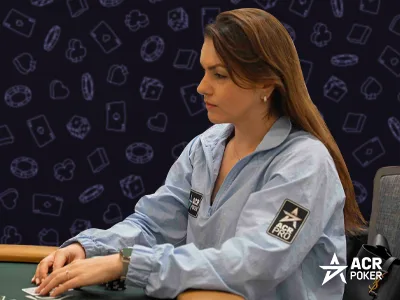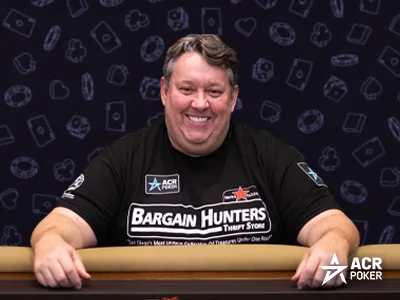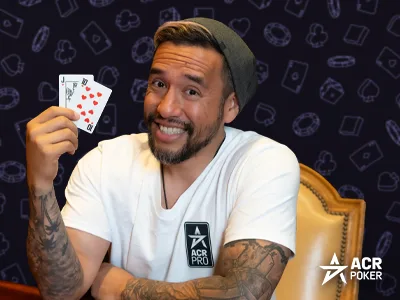Small pocket pairs thrive in heads-up play when used flexibly Playing small pocket pairs in heads-up situations requires a different mindset than full-ring or multiway pots. With only two players involved, hand values increase, and pairs like deuces through sixes gain more strategic importance. Understanding how ranges widen is the starting point. Preflop, small pocket
Category: Poker Strategy
Defending the Big Blind Against Late Position Raises
Mix calls, folds, and three-bets to turn a vulnerable spot into a steady source of long-term value Defending the big blind is one of the most common and challenging spots in poker, especially when facing raises from late position. Because you already have money invested, folding too often can slowly drain your stack. At the
Tips for Playing Short Deck Poker in High Stakes Environments
Identifying who over-bluffs, who calls too wide, and who adjusts poorly allows you to exploit edges Playing Short Deck Poker at high stakes demands sharper adjustments than the standard game. With fewer cards in the deck, hand values shift and variance increases. Players must be prepared for faster swings, thinner edges, and opponents who are
Adapting to Tournament Table Dynamics Post-Rebuy Period
Adjust aggression and read table behavior to set yourself up for deeper runs and stronger finishes The end of the rebuy period marks a clear shift in tournament poker. Chips gain real value, mistakes become harder to recover from, and player behavior often changes quickly. Recognizing this transition is essential for staying competitive as the
Assessing Risk: Handling All-in Situations With Weak Hands
Handling all-in situations with weak hands requires patience, observation, and self-control For poker beginners, all-in decisions can feel overwhelming, especially when holding a weak hand. These moments often define a session, making risk assessment a vital skill to develop early. Acting without a plan can quickly drain a stack. Understanding hand strength is the first
The Role of Positional Awareness in Heads-up Strategy
In heads-up formats, every decision is magnified, and position influences nearly all of them Positional awareness is one of the most important concepts in heads-up play, where every hand is contested and small edges matter more. With only two players, the button acts first before the flop and last on every postflop street, creating a
Recognizing and Countering Common Mistakes in Freezeouts
Over time, cleaner decisions and sharper adjustments turn freezeouts from a grind into consistent deep runs Freezeout tournaments reward discipline, patience, and clear decision-making. With no rebuys or add-ons available, every chip matters from the first hand to the final table. Recognizing common mistakes early can protect your stack and improve long-term results in this
Building a Study Routine for Six-Plus Hold’em
A steady routine with clear goals leads to better retention than occasional deep dives Six-Plus Hold’em requires a different study approach than traditional No-Limit Hold’em. The reduced deck changes hand values, equity distribution, and betting dynamics. Building a focused study routine helps players adjust faster and avoid costly habits. Start by learning the rule differences
Maximizing Value From Add-on Opportunities in Rebuy Tournaments
Maximizing value from add-ons is about preparation, not impulse Rebuy tournaments create unique strategic decisions that do not exist in freezeout formats. Add-ons, in particular, can offer strong value when used correctly. Understanding when and why to take them can significantly improve long-term tournament results. An add-on usually provides extra chips for a fixed cost
Psychological Strategies for Staying Calm During Cold Decks
By focusing on solid decisions and trusting long-term outcomes, you can survive dry spells without damaging your game Cold decks are an unavoidable part of poker, and how players respond to them often matters more than the cards themselves. Long stretches of bad hands can create frustration, doubt, and rushed decisions. Staying calm during these
Bluffing Effectively in Heads-Up: When and How to Do It
Bluffing heads-up means choosing the right moments and using pressure as a calculated tool Bluffing plays a very different role in heads-up poker than it does at a full table. With only two players involved, ranges are wider, hands are weaker on average, and aggression increases naturally. This creates more chances to bluff, but also
Strategic Use of Min-Raises in Satellites
A clinical approach to pot control ensures you don unnecessarily risk your tournament life In satellite poker tournaments, the primary strategic objective is survival rather than chip accumulation. Because the payout structure is flat—awarding identical prizes to all qualifiers regardless of their final stack size—players must adopt a risk-averse approach that differs significantly from standard












